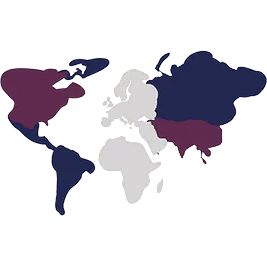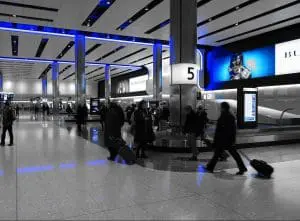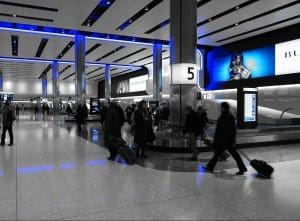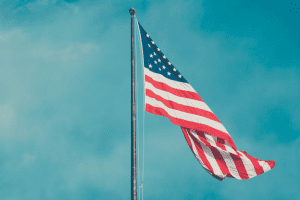Family Visa USA from Nigeria
If your family wishes to reside in the US, either temporarily or permanently, you will need to obtain a Family visa. There are several USA Family visa options available for Nigerians and it’s important to select the most appropriate one for your circumstances.
For more information about USA Family visas for Nigerian citizens, including the eligibility criteria, how to apply, and advice about your situation, contact our experienced legal team today. Contact our office in Lagos which you can reach by calling +2342013306361, or speak to our US office by calling +44 (0) 3316300929. Alternatively, you can contact us online for advice about your situation.
Read our 1001 reviews
Request a call back from our immigration experts
Benefits of Choosing IAS‘ USA Immigration Lawyers
When it comes to obtaining a USA visa or permit, IAS USA immigration lawyers are well-equipped to help you.
With IAS’s track record of successfully helping clients visit or immigrate to the United States, we can help businesses and individuals achieve their goals.
Our dedicated immigration lawyers provide our services through a comprehensive and personalised approach. With IAS, you enjoy:

Compassionate support from an experienced immigration lawyer dedicated to your success



Support in gathering supporting documents and completing a high-quality application.



Confidence that your case is being handled by an experienced team.



In-house document checks done by lawyers who are well-versed in US immigration matters.
Services we Provide
Looking to Apply for a Family Visa?
If you need advice and support about obtaining your US Family visa, IAS can help. We have a dedicated office located in Lagos who are experienced in helping Nigerians with the entire visa process. Let us handle all the complexities and make your travel plans as stress-free as possible.
Nigerian Emigration
For Nigerian emigration matters, please call +2342013306361 or +44 (0) 3316300929
Other Immigration and Emigration Matters
For immigration/emigration to/from other countries, please call:
US – +1 844 290 6312
Ireland – (+353) 061 518 025
UK – (+44) 333 4149244
Overview of USA Family Visa from Nigeria
A US Family visa allows foreign nationals to live with their relatives.
US Family-based visas can be divided into two categories:
- Non-immigrant visas for temporary residence; and
- Immigrant visas, or Green Cards, for permanent residence.
Depending on the visa or Green Card applied for, a US citizen or a Lawful Permanent Resident can sponsor certain family members to receive specific immigration benefits. These may or may not include the ability to work or study.
To obtain a Family-based visa, you will need to meet the eligibility criteria of the specific visa you are applying for and complete the application process. In some instances, this may include an interview and a medical examination.
Certain visas such as the Family Preference Green Cards are subject to limits in the amount issued per fiscal year. Once these limits have been reached, new visas in that category will not be issued.
Please note that being granted a visa does not guarantee entry into the USA. US Customs and Border Protection officials have discretion and authority to allow or refuse incoming arrivals at the point of entry.
US Non-immigrant Family Visas for Nigerians
Overview
A US Non-immigrant Family-based visa allows temporary residence in the US.
There are several types of US Non-immigrant Family visas for Nigerians. These include:
- K-1 visa for a foreign citizen fiancé(e) to join a US citizen with the intention of getting married within 90 days. If you fail to get married within this time period, you must leave the US within 30 days.
- K-2 visa for unmarried children under the age of 21 of K-1 visa holders. Whilst in the USA, you will be able to attend school or work for the duration of your visa.
- K-3 visa for foreign citizen spouses to join their husband/wife in the US for 2 years. To be eligible for this visa, you must be legally married outside the USA and one spouse must be a US citizen. Green card holders are not eligible.
- K-4 visa for unmarried, dependent children under the age of 21 of K-3 visa holders. Whilst in the USA, you can attend school and apply for an Employment Authorization Document (EAD), allowing you to work.
- H, L, O, P visas for the spouse and unmarried children under the age of 21 years old of Temporary Worker visa holders. You must be able to show you will be able to financially support your family for the duration of your visa.
Non-immigrant Family visas are not subject to an annual cap and the waiting list is usually quicker than Immigrant Family-based visas.
Once you have obtained a Non-Immigrant visa and entered the US, you may apply to extend your visa or continue the immigration process to gain permanent residency.
Can I Bring My Family to the USA While Studying?
Three US Family-based visas allow Nigerian spouses and children to join their family in the USA whilst their sponsor is studying.
These are:
- F-2 visa for spouses and children under the age of 21 of F-1 visa holders studying at a university, college, high school, private elementary school, seminary, conservatory or another academic institution, including a language training program. You will not be able to work or study full-time with this visa.
- M-2 visa for the dependant spouse and unmarried children under the age of 21 of M-1 visa holders in a vocational or other recognised non-academic institution, other than a language training program. You will not be able to work or study at a US university with this visa, however, children can attend school.
- J-2 visa for the spouse and unmarried children under the age of 21 of J-1 visa holders temporarily residing in the United States as part of an exchange visitor program such as an intern or exchange student. Depending on specific conditions, you can study and work in the United States for the duration of your visa.


US Immigrant Family Green Cards for Nigerians
Overview
To allow your Nigerian family to permanently reside in the United States, you will need to apply for a US Immigrant Family Green Card on their behalf.
US Citizens or Lawful Permanent Residents (LPR) aged 21 years old and above can petition for a Green Card for their family member by completing Form I-130.
Once you receive I-130 approval, you will either:
- Submit a Form I-485 application if you are in the US; or
- Obtain a visa to travel to the US through consular processing. This is done at the US embassy or consulate. In Nigeria, the US Embassy is in Abija and the US Consulate General is in Lagos.
Green Cards are usually valid for 10 years and can be renewed indefinitely, subject to conditions. Holders of Green Cards will also have the opportunity to apply for US citizenship at a later date.
Your family relationship determines which US Family Green Card option you should apply for.
US Green Cards for Immediate Relatives
Immediate family members of US citizens are eligible to apply for a Green Card and become Lawful Permanent Residents of the United States.
You are considered an immediate relative if you are:
- A spouse (Category IR1 or CR1)
- An unmarried child under the age of 21 years (Category IR2)
- The parent of a US citizen who is over the age of 21 (Category IR5)
If you are recently married and apply for a US Green Card, you may be granted a CR1 or Conditional Resident Spouse Visa. Unlike IR1, where you are granted permanent residency, CR1 allows you to reside in the United States on the condition that you remain married for at least 2 years. After 2 years, you will be able to transition to an IR1.
Widows or widowers who were legally married at the time of the US citizen’s death are also eligible to apply for a Green Card within 2 years of their spouse’s death. You will have to prove that you entered into the marriage in good faith and not as a way to gain immigration benefits.
Stepchildren and adopted children will be considered eligible subject to the following conditions:
- In the case of stepchildren, their parents must have gotten married before the child turned 18 years old.
- In the case of adopted children, they must have been adopted before the child turned 18 years old, and they must have lived with their US parents for at least 2 years.
The number of US Green Cards available for immediate relatives is not subject to a fiscal year cap and they receive a higher priority compared to those who apply under the Family Preference categories.
US Green Cards for Other Family Members
Other family members from Nigeria may be eligible for a US Green Card or Family-based Immigrant visa if they belong to one of the “Family Preference” categories:
- First preference (F1) – unmarried children over the age of 21 of US citizens
- Second preference (F2A) – spouses and unmarried children under the age of 21 of lawful permanent residents
- Second preference (F2B) – unmarried children over the age of 21 of lawful permanent residents
- Third preference (F3) – married children of US citizens
- Fourth preference (F4) – siblings of US citizens over the age of 21
This type of Green Card is subject to an annual cap, including an overall and country limit. This means that you may have to wait for availability if these figures have been reached.


How IAS Can Help
Applying for a USA Family visa from Nigeria can be a complicated and overwhelming process.
If you want to apply for your family from Nigeria to reside in the United States, IAS can help.
Whether you need advice about your eligibility or want to know what documents to take to your interview, our understanding, expert time is ready to assist you.
We have a dedicated office located in Lagos who are experienced in helping Nigerians with the entire visa process.
For more information about US Family visas for Nigerian citizens, including the eligibility criteria, how to apply, and advice about your situation, contact our experienced legal team today. Contact our office in Lagos by calling +2342013306361, or speak to us on +44 (0) 3316300929. Alternatively, you can contact us online for advice about your situation.
Table of Contents
Table of Contents will appear here.Legal Disclaimer
The information provided is for general informational purposes only and does not constitute legal advice. While we make every effort to ensure accuracy, the law may change, and the information may not reflect the most current legal developments. No warranty is given regarding the accuracy or completeness of the information, and we do not accept liability in such cases. We recommend consulting with a qualified lawyer at Immigration Advice Service before making any decisions based on the content provided.
Frequently Asked Questions
For some types of visas and Green Cards, there is a limit on the number available during a fiscal year.
As of June 2023:
- The annual minimum Family-sponsored Preference visa limit is 226,00.
- The per-country limit for Preference immigrants is set at 7% of the total annual Family-sponsored and Employment-based Preference visas. This equates to 25,6250.
- The dependent area limit is 2% of the total annual Family-sponsored Preference visas. This is 7,320.
- The total number of F1 visas available is 23,400. If the maximum total number of F4 visas is not granted, this excess will be added to the F1 total.
- The total number of F2 visas available is 114,200. If the maximum total number of F1 visas is not granted, this excess will be added to the F2 total, along with the number by which the worldwide Family Preference visa level exceeds 226,000.
- F2A visas account for 77% of the overall Second Preference visa limit, of which 75% are exempt from the per-country limit.
- F2B visas account for 23% of the overall Second Preference visa limit.
- The total number of F3 visas is 23,400. If the maximum total number of F1 or F2 visas is not granted, this excess will be added to the F3 total.
- The total number of F4 visas is 65,000. If the maximum total number of F1, F2, or F3 visas is not granted, this excess will be added to the F4 total.
If a limit is reached, the preference category is made “unavailable” and no further requests will be granted.
The following groups may be deemed to be ineligible for a US visa:
- Those who have been convicted of an offence anywhere in the world. You will require a waiver of ineligibility to be granted a visa.
- Those who have a disease of public health significance, a mental disorder associated with a display of harmful behaviour, or a drug abuser or addict.
- Those who have been previously denied entry, deported or overstayed their visa.
In these situations, you will require a waiver of ineligibility to be granted a visa.
There is no appeal process.
If your visa is denied, you will usually be told the reason for the decision.
The consular office will tell you if you need to provide more information or if you can apply for an ineligibility waiver. A waiver of ineligibility is a discretionary document that may allow your application due to your circumstances. However, there is no guarantee that this will be granted.
You can reapply in the future by submitting a new application and showing a significant change in your circumstances
your visa was found ineligible under INA Section 212(a)(C)(i), it means a consular officer believes you misrepresented a material fact or committed fraud in an attempt to obtain your visa.
Misrepresentation means that your application was not fully truthful or presented in a way to falsify your eligibility.
This denial will be recorded on your permanent record and be seen by future officers if you reapply for a visa. Depending on the nature of your actions, you may receive a life-long visa ban, preventing you from visiting or residing in the US.
Providing false information in support of someone else’s application is considered human smuggling. Those found to have done this will have, where relevant, their own visas revoked and will also receive a life-long visa ban.
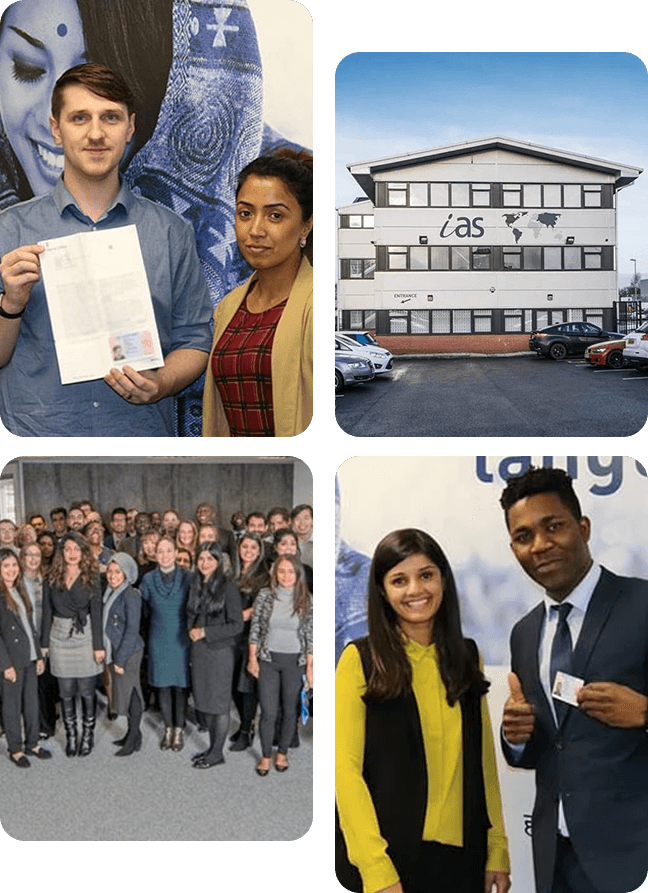

What our clients are saying
How our UK Immigration Lawyers can help
At the Immigration Advice Service our lawyers specialise in a wide range of UK visas, nationality and asylum applications and have represented clients in various successful complex and high-profile cases.


